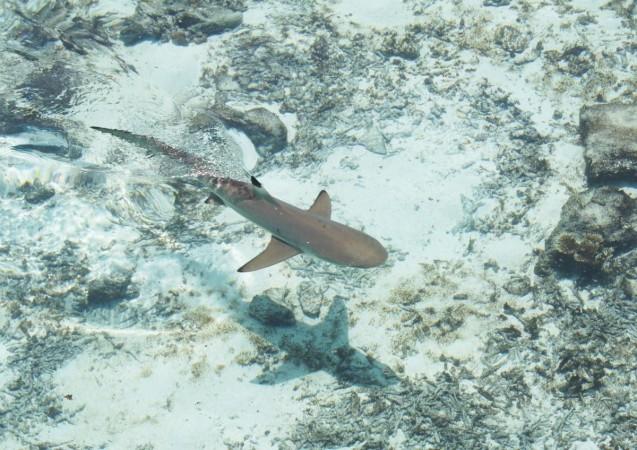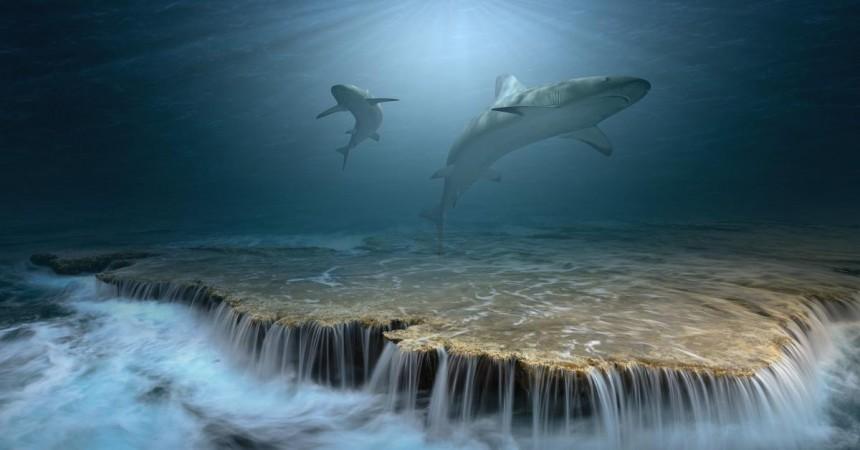More than 14,000 sharks were caught in the Marine Protected Area (MPA) in the Indian Ocean between 2010 and 2016, while interviews with local fishermen indicate that the true number was "considerably higher" than that, said a new study of the enforment data.
The MPA was established in 2010 around the Chagos Archipelago, commonly known as British Indian Ocean Territory (BIOT), and prohibits any fishing inside its boundaries. The current study looked at data on illicit fishing in the MPA, which covers a large area (640,000 km2/250,000 mi2) and has both pristine and distant reefs.
From 2010 to 2016, 126 of the 188 vessels investigated by the BIOT MPA patrol boat were suspected of unlawful fishing, with 97% of these allegedly targeting sharks. The University of Exeter, the Zoological Society of London, Oceanswell, and MRAG conducted the research.

"Enforcement of MPA rules in a large, remote area such as this is extremely difficult," said lead author Claire Collins. "Our findings highlight the threat of illegal fishing to sharks in the BIOT MPA, which is home to critically endangered species such as the oceanic whitetip and scalloped hammerhead. Fishers often target reef areas, where many of the sharks are juveniles, and taking sharks at this life stage could be especially damaging to species numbers".
Collins adds, "However, it's important to note that - despite evidence of shark fishing - the MPA still provides a vital refuge in the Indian Ocean, and shark numbers there are still much higher than most other places".
According to the study, fishermen told the researchers that vessels frequently fished in the MPA without being noticed, offering "clear evidence that total extraction was considerably higher" than the estimate of 14,340 based on observed vessels.
"It is crucial to work with fishing communities to understand where, when and why people fish illegally - and how we can improve deterrence," Tom B Letessier, the final author, stated. "For example, we found fishers had very different ideas of the fines they could face, and some felt there were very unlikely to be caught - so improving awareness of the sanctions, in addition to increasing the probability of being caught, could be beneficial."

Efforts are being made to strengthen MPA enforcement, including increasing the use of satellite tracking of vessels and ensuring implementation is responsive to the danger of illegal fishing. This study emphasizes the importance of connecting with fishermen to learn about the challenges they face and what drives their actions.

















